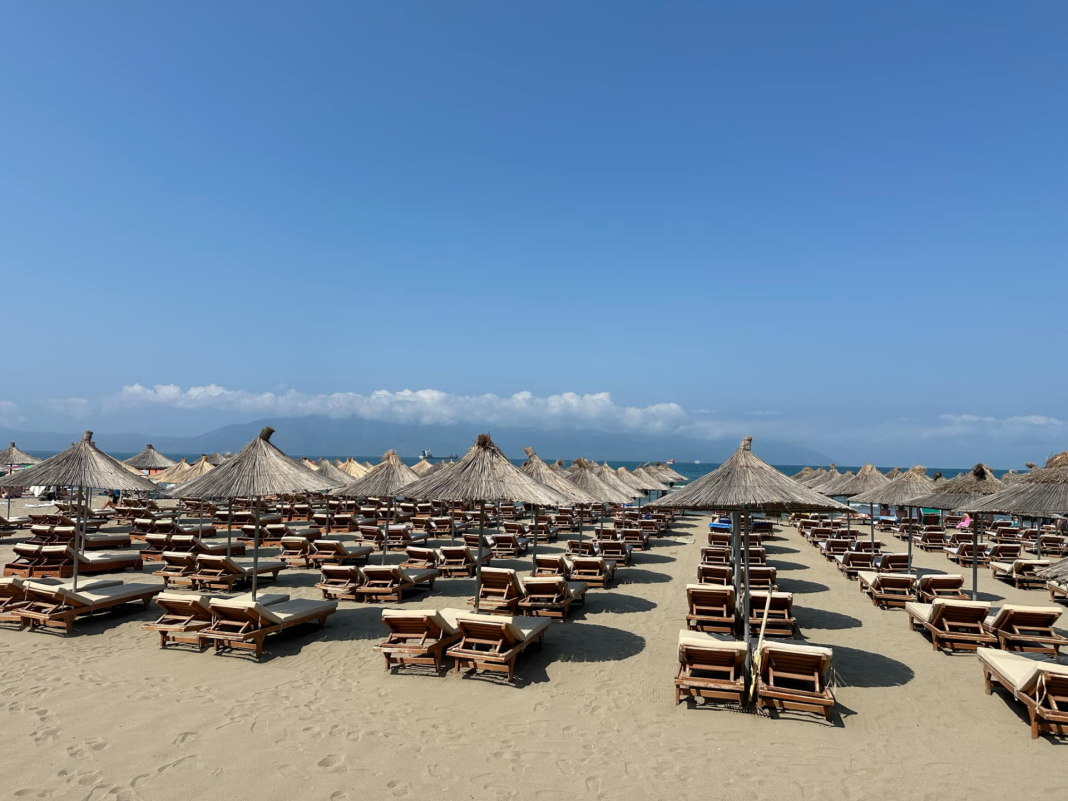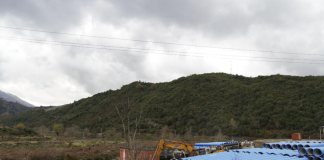This summer season, authorities have warned of strict penalties for violators who threaten the safety of beachgoers. Investigations by Faktoje reveal that, despite some fines, the safety perimeter at several beaches is still being breached, putting vacationers’ lives at risk.
Afrovita Hysaj
At the start of the summer season, former Interior Minister Taulant Balla announced severe punishments for anyone who infringes on the safety perimeter along the coast.
‘The Border Police and the Coast Guard are always on duty to provide assistance. Tour operators need to understand that they cannot operate unlicensed boats, and in every instance, the punitive measures will be strict, and maritime vessels will be confiscated in accordance with the law. The lives of vacationers cannot be endangered due to irresponsibility’, Balla declared on May 1, while praising the Border Police and Coast Guard for rescuing 11 tourists at sea after their boat encountered a malfunction.
Verification
As August came to a close, Faktoje decided to conduct a verification regarding the safety of vacationers at several beaches. In Vlorë, the location for docking vessels is near the cargo port’s fortress, which is why the beach in this area is restricted.
However, at other beaches such as those in Karaburun and Sazan, which are frequented by most vessels from Vlora, there are no designated docking sites. At these beaches, boats are positioned near vacationers who are swimming in the sea, which poses a danger.
A similar situation is seen at the beaches of Radhima, extending to Dhërmi, and a large part of the Riviera—mainly at the closed beaches.
The images below were captured in Porto Palermo, in the area recognized as a docking point for vessels, which also has a permit for beach usage. As a result, vacationers at this beach have to swim close to the boats, risking their life.
According to on-site observations, in addition to the lack of designated docking spots for these vessels, another issue relates to the establishment of corridors for the movement of watercraft.
Penalties for Violators
The entire coastline from Vlora to Saranda is monitored by the Local Directorate for Border and Migration, which has deployed 18 Jet Ski units from the Marine Police and 6 watercraft for border patrol.
From the beginning of the year until the end of July, a total of 4,791 watercraft have been checked and verified, leading to the confiscation and imposition of fines on 133 vessels, which will be released upon payment of the fines.
The Border Police has issued 133 administrative sanctions, but has not disclosed any information about the number of individuals prosecuted for violations of maritime law.
Additionally, Vlora Local Police Directorate has released public communications for the January-July period, indicating numerous cases of individuals abusing their rights by not only violating navigation limits with watercraft but also endangering the lives of vacationers. However, not all of these incidents have been reported to the Prosecutor’s Office.
Empty Lifeguard Towers
There is a significant lack of coastal monitors, particularly on public beaches. In contrast, on private beaches, it has been discovered that a practice of fictitious registration (mostly by the owners themselves) is taking place in the role of observers, while the lifeguard towers remain unoccupied.
‘I have never seen a lifeguard at all; we have never encountered one,’ says a vacationer in Vlora.
Data from the Police indicates that this season has seen six deaths at the beaches, involving individuals who drowned or passed away due to cardiac issues.
Leneda Halili, a trainer for lifeguards, points out that Vlora is facing a notable shortage of lifeguards once again this year.
‘There is little interest among the youth in Vlora to take on the seasonal job of a beach lifeguard. So far, only around 35 people have been trained for this role.’
She further mentions that, as a result, businesses are resorting to fictitious solutions.
‘In Vlora, there’s a trend where business owners are trained to be beach lifeguards just to meet the legal requirements for using public beach spaces,’ Halili says.
‘Many of these trained lifeguards seek employment abroad, as they can earn much higher salaries in European Union countries. They acquire their certificates and leave for better opportunities,’ she argues.
Despite being a legal obligation, many beaches in the southern coastal region lack swimming safety markers.
‘There are no barriers; having them would certainly improve safety,’ says a vacationer in Vlora.
The lack of swimming safety barriers is evident throughout both the city and the outskirts of Vlora. Observations indicate that only 40% of beaches comply with this requirement.
Conclusion
Based on our verifications, we categorize the statement made by former Interior Minister Taulant Balla regarding the safety perimeter at beaches as half-true.










